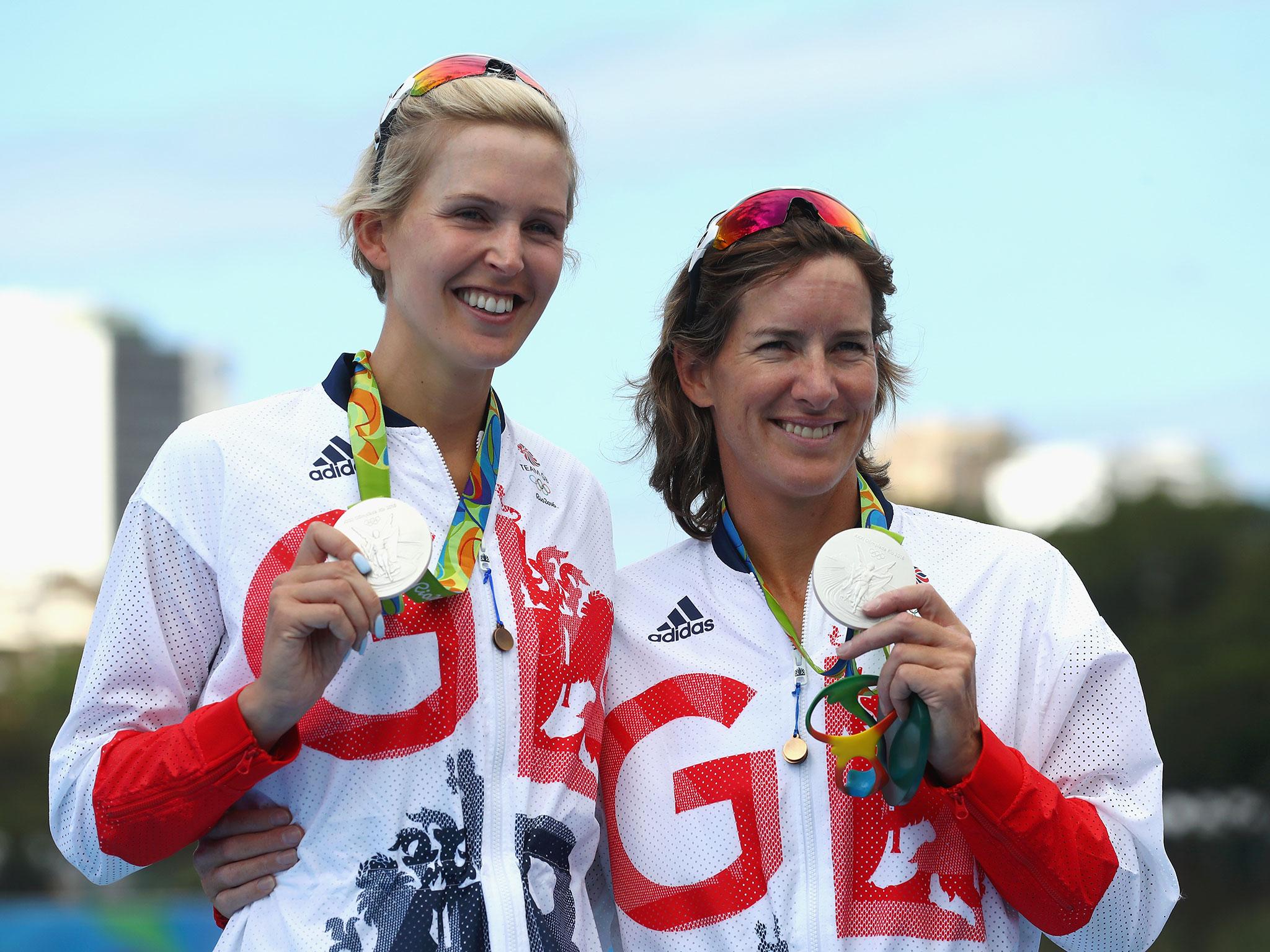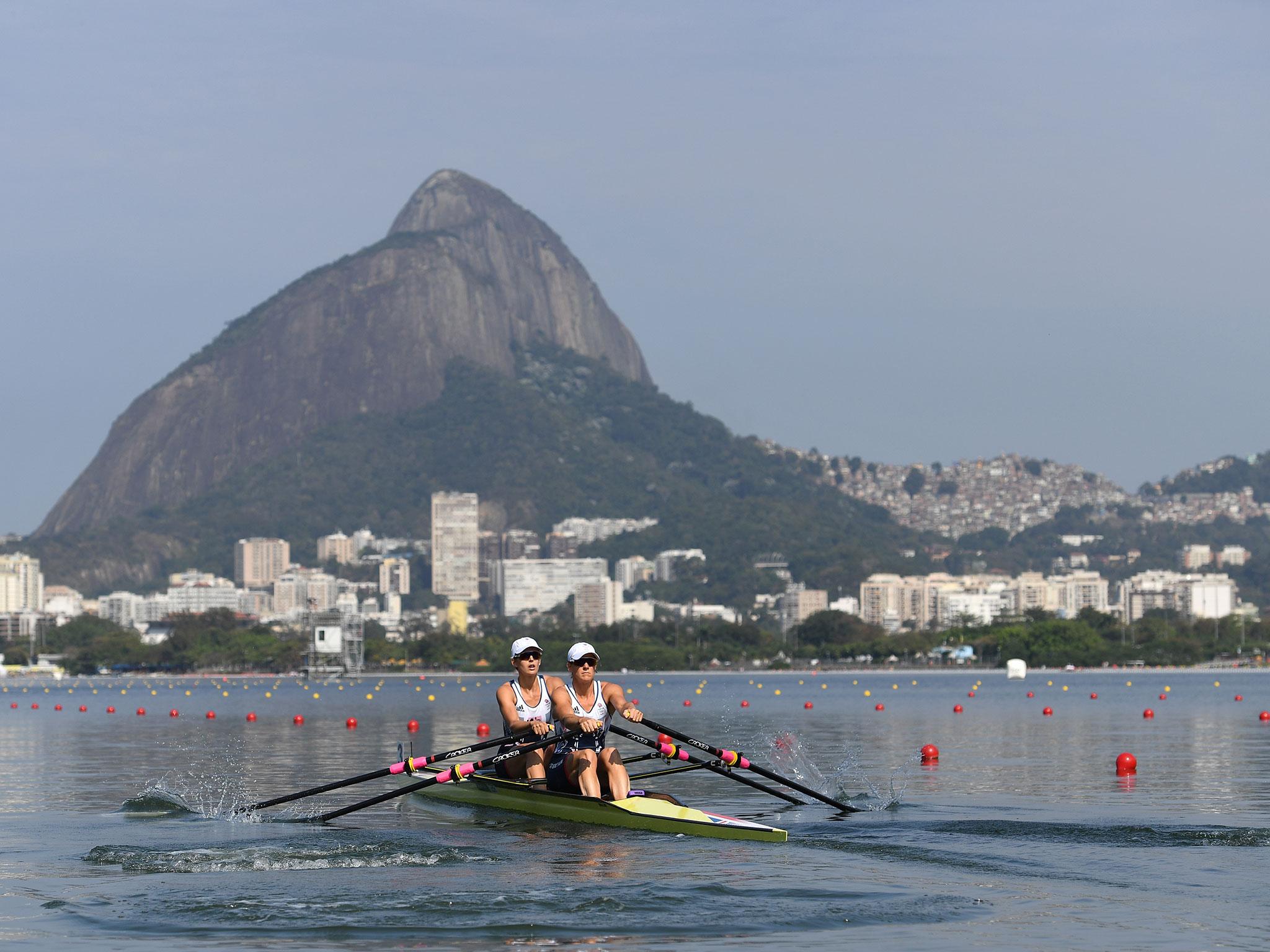Rio 2016: How Katherine Grainger struggled to click with her partner and clinched a fifth Olympic medal
Beneath the surface harmony between Grainger and Victoria Thornley is the story of their struggle to establish a partnership

Your support helps us to tell the story
From reproductive rights to climate change to Big Tech, The Independent is on the ground when the story is developing. Whether it's investigating the financials of Elon Musk's pro-Trump PAC or producing our latest documentary, 'The A Word', which shines a light on the American women fighting for reproductive rights, we know how important it is to parse out the facts from the messaging.
At such a critical moment in US history, we need reporters on the ground. Your donation allows us to keep sending journalists to speak to both sides of the story.
The Independent is trusted by Americans across the entire political spectrum. And unlike many other quality news outlets, we choose not to lock Americans out of our reporting and analysis with paywalls. We believe quality journalism should be available to everyone, paid for by those who can afford it.
Your support makes all the difference.In the sunshine behind the winners’ podium, Katherine Grainger offered Victoria Thornley her hand. She accepted it and they stood there, linked like that for a moment or so, before they were called up to accept double sculls silver medals.
It was Grainger’s fifth Olympic medal, making her the event’s most decorated British women in the modern era. But beneath the surface harmony between her and her rowing partner is the story of their struggle to establish a partnership - or even a friendship. That is what makes the fifth of her Olympic medals perhaps the most extraordinary of all.
There have been times in the last few years when even direct eye contact between the two has been absent. They have just not gelled in the way that Grainger did with Anna Watkins at the London Olympics. It was when this translated into a failure to achieve times which would be competitive in Rio that the two were on the brink of exclusion from the rowing squad. After they failed to make the podium at this year's European Championships, they both tested for the women's eight crew. They fell short of their team-mates' times and were made to wait before being confirmed in the squad for the doubles. They were not named in the initial Rio squad.
The Great Britain rowing coach Paul Thompson described in the aftermath of their silver – which was 0.95 seconds away off being a gold – the struggle to decide whether hearts should rule heads with Grainger and Rio. Did the times tell them they should be dropped or would Grainger’s Olympian commodity prevail?
Thompson and his coaches were locked in discussions on the day the squad was named, attempting to decide whether Grainger and Thornley should be included. “We had a meeting that morning - all three of us had a meeting - and we all committed to the boat and committed to making it work,” he said.
The low point came that morning when they were initially excluded, Grainger said. “There was a point when we weren’t in an Olympic boat,” she reflected. “We weren’t selected. [We didn’t know] if it would be possible to get that place at the Olympics and if so what boat that would be. Two months out of the Olympics it’s not the place you would want to be.”
It takes an extraordinary work ethic to collect five Olympic medals across five Games - as Grainger has - and that certainly helped turn things around. Thompson said her weekly training schedule for Rio has included around 200km a week and three weight sessions.
“Those sort of athletes that go over five Olympics - Fran Horton, Steve Redgrave - you have to be completely dedicated, diligent and on your game, because you have to look after your body and your chassis all the way,” the Australian said. “What she has done is just an amazing job.” It was especially so, given Grainger’s decision to take two years out of the sport after the London Olympics.
Thompson, who is an uncompromising character, urged Grainger to get back from her rowing break if she wanted to be at Rio. “I was pushing her on a little bit to start a bit. I said it would take her as long to get back as she had been away,” he said.
And the two women must also take credit for learning to live with each other. To observe the two of them discussing their achievements on Thursday was to appreciate what radically different characters they are. Dr Katherine Grainger, to apply the full title now she has PhD in criminology, did all the talking, more comfortable in the space than Thornley, who is 12 years her junior.
Grainger’s silver takes her past swimmer Rebecca Adlington's four Olympic medals, and level with tennis player Kitty Godfrey (nee McKane). Her own haul began with silver at Sydney, the same metal at Athens in 2004 and Beijing in 2008, then gold with Anna Watkins at London 2012.

Godfrey’s five Olympic medals in the 1920s, one gold, two silver and two bronze, came when the event was far less competitive. There will be no more for Grainger. She wheeled around and laughed when it was put to her that Tokyo might appeal.
“My mum and dad weren’t sure if coming back was the right thing for me and they've been so supportive since I did,” she said. “We all know it was the right decision now. But at the same time, I think maybe that’s enough.”
The silver was so unexpected in the circumstances that the agony of how close gold had been did not seem as acute as it might. They led for the most of the race and were only pipped to gold in the last seconds, when the Polish pair slipped ahead to win by a mere 0.95 seconds.
“I don’t actually know how close we were,” Grainger said. “But we brought our best race to that final.”
For Thompson, the silver provided some justification for a sometimes uncompromising style which has earned him criticism and an accusation of bullying from former competitor Emily Taylor “I’m not necessarily the smoothest drink in the liquor cabinet,” he said. “We look after our rowers really well I feel. It’s brutal out there. You can see the racing and we have to prepare for them to deliver what they do. They’ve been focused on what they’ve had to deliver here.”
In the final reckoning, it was the mental image of standing beside a Rio podium which Grainger said had seen her through. “I think days like this [made the difference] to be honest,” she said. “I’ve been to the Olympics before, I know how special it is and how worthwhile it is, I am bit of an eternal optimist and I felt that it would work out if we could find our way through those low times. In a way it makes all the results sweeter if you’ve been through the mill and come out.”
Join our commenting forum
Join thought-provoking conversations, follow other Independent readers and see their replies
Comments